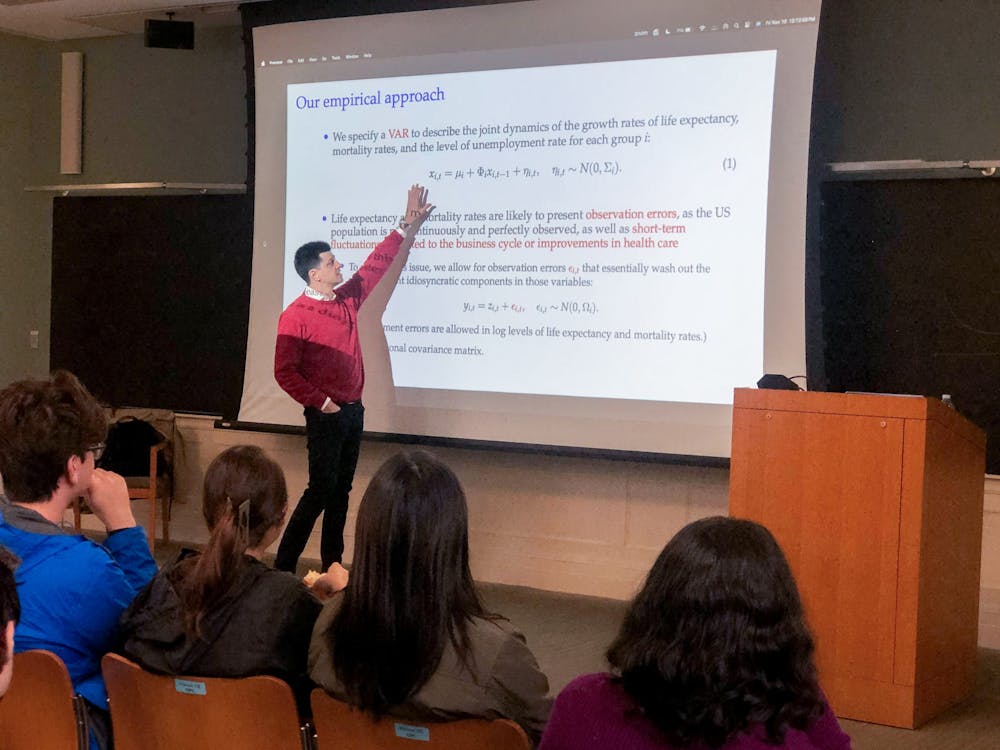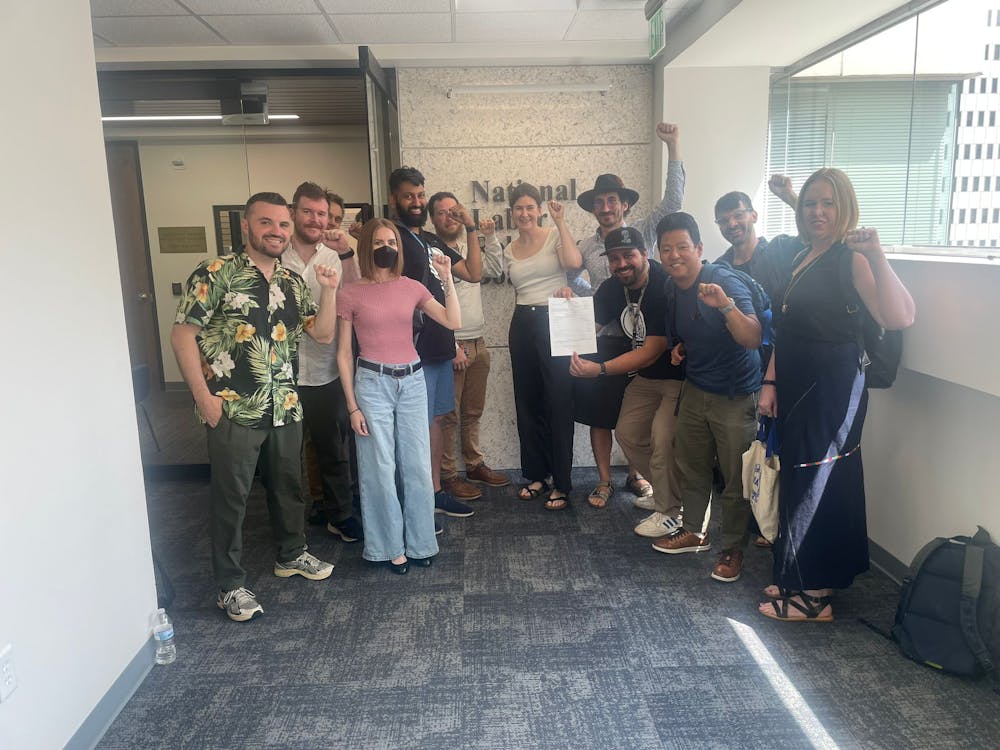The Economic Policy Issues Colloquium (E.P.I.C.), a student-run economics forum, hosted an event on Friday, Nov. 10 titled “Impact of Unemployment on Life Expectancy and Mortality during COVID.” Economics professor Francesco Bianchi gave a presentation on his work studying the long-term impact on mortality and life expectancy rates resulting from pandemic unemployment.
As a result of the lockdown measures implemented at the start of the COVID-19 pandemic, many Americans were forced to leave their jobs, resulting in a massive spike in unemployment. Economics professor Hellen Seshie-Nasser, a co-faculty advisor of E.P.I.C., explained the significance of this in an email to The News-Letter.
“Not only did the disease affect death rate and life expectancy by itself, but it also compounded the impact on these indicators through stress induced by high unemployment,” she wrote.
Bianchi, along with his sister Giada Bianchi and Hopkins colleague Dongho Song, aimed to determine how the economic repercussions of this unemployment spike translate into negative health impacts for the future population.
In the study, a time series approach was used to analyze the historical relation between unemployment, life expectancy and death rates. Based on those results, Bianchi and his collaborators were able to assess how the economic upheaval caused by COVID-19 will impact life expectancy and death rates over the next 15 to 20 years. They generated rates for the overall U.S. population, as well as subgroups based on race and gender.
According to Bianchi’s paper, the estimated “unemployment shock” caused by COVID-19 is two to five times greater than the typical unemployment shock and disproportionately affects African American men and women.
“The unfortunate truth is that in the U.S. there is still a lot of disparity in life expectancies across races,” Bianchi said.
Although the shock also negatively impacts white men, its effects are more observable in other populations. The results of the paper attribute about 800,000 deaths in the next 15 years to the COVID-19 unemployment shock.
In an interview with The News-Letter, freshman Yvette Shu, studying political science, commented that the disproportionate impact of the unemployment shock for Black men stood out to her.
“I was mostly interested in how [Bianchi] calculated the death rates and unemployment rates for African Americans and white Americans and how they would be impacted by a recession,” she said. “It really goes to show that the way in which the U.S. political system is organized is still discriminatory. The difference between White and Black death rates are still very staggering.”
Bianchi emphasized that his work was not an argument against the necessity of the lockdowns that took place in 2020. He highlighted that if lockdowns had not been implemented, over 100,000 additional lives may have been lost in the United States.
“The point of this paper is to say that you should combine these lockdowns with other policies that ensure first, that people still have access to healthcare and second, that they do not incur too much economic hardship as they transition out of COVID,” he said.
Bianchi and his colleagues argue that the anticipated death toll can only be effectively lowered in both the short-term and the long-term by combining policies that can provide healthcare, economic, social and psychological support to the population.
Freshman Zubin Berry attended the presentation with his macroeconomics class, taught by Seshie-Nasser. In an interview with The News-Letter, Berry explained the importance of attending the lecture as an economics student.
“COVID has had such a big impact on the economy, and as an economics student, I think COVID helps you in understanding how the economy functions in a period of crisis,” he said.
Seshie-Nasser highlighted that though this event attracted many students majoring in economics, all Hopkins students have much to gain from learning about this research.
“The topic is relevant to all students not only because high unemployment and the resultant change in well-being are issues that affect everyone, but also because Hopkins students from economics and other majors tend to be represented in policy-making organizations,” she said. “Hence, learning about the evidence on these important issues is necessary in their college education.”
Yvette Shu is a member of the News & Features section at The News-Letter and did not contribute to the reporting, writing or editing of this article.





